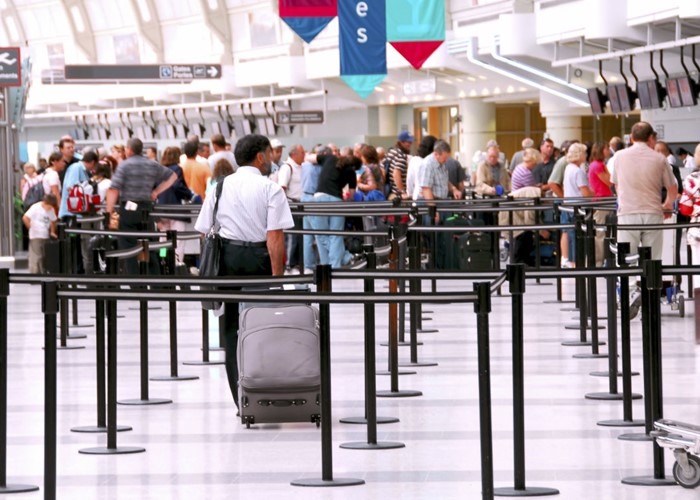Holiday booking scams costing us millions

New warning on the dangers of booking holidays over the internet.
Fraudsters stole an estimated £2.2 million from holidaymakers and other travellers last year according to a new report from the National Fraud Intelligence Bureau (NFIB).
It revealed that during a 12-month period 1,569 cases of holiday booking fraud were reported to the department’s Action Fraud team. The most common attacks happened online and were related to:
- Holiday accommodation: Using the internet fraudsters were able to con would-be holidaymakers booking accomodation in a variety of ways. They included leading them to fake websites, hacking into legitimate accounts and posing as the owners, and posting fake adverts on social media, Gumtree and Craigslist.
- Airline tickets: Victims believed they were booking a flight and received a fake ticket or paid for a ticket that never turned up. Flights to West Africa were a particular target.
- Sports and religious trips: Often a target due to limited availability and the higher prices charged. In 2014 the Commonwealth Games in Glasgow and World Cup in Brazil were impacted with numerous people having paid for non-existent accommodation or tickets. Religious trips to the Hajj in Saudi Arabia also resulted in high losses for some pilgrims who were duped by scams.
- Holiday clubs: Victims were offered “free” holidays to entice them into attending a seminar where they were duped into buying a bogus timeshare.
The most commonly targeted were those aged between 30 and 49 with spikes in fraud reported in the summer months and December.
ABTA, The City of London Police and Get Safe Online have joined forces to warn against the dangers of holiday fraud and urge people to exercise caution when booking a holiday.
Cut the cost your next holiday with an air mile credit card
Financial loss
Given the nature of the scams, losses were substantial with the average amounting to £889 for an individual. But in one case relating to a fake timeshare the loss was a staggering £62,000.
As the majority of those defrauded paid by bank transfers or cash, there was no way to get the money back.
Only a small minority paid via credit or debit card, which carry more protection when things go wrong.
‘High emotional impact’
But the losses experienced weren’t just financial, with a third of victims saying the scam had a substantial impact on their health as well as their financial well-being.
167 victims reported the impact of the crime was so upsetting they had to receive medical treatment.
Mark Tanzer, ABTA chief executive, said: "Holiday fraud is a particularly distressing form of fraud as the loss to the victim is not just financial but it can also have a high emotional impact. Many victims are unable to get away on a long-awaited holiday or visit loved ones and the financial loss is accompanied by a personal loss."
Get 5% interest from a current account
How to stay safe when booking a holiday
The City of London Police, ABTA and Get Safe Online have published advice on how to avoid becoming a victim of holiday booking fraud.
Top tips include:
- Stay safe online: Check the web address is legitimate and has not been altered by slight changes to a domain name – such as going from .co.uk to .org
- Do your research: Don’t just rely on one review - do a thorough online search to check the company’s credentials. If a company is defrauding people there is a good chance that consumers will post details of their experiences, and warnings about the company.
- Look for the logo: Check whether the company is a member of a recognised trade body such as ABTA. You can verify membership of ABTA online.
- Pay safe: Never pay directly into an owner's bank account. Paying by direct bank transfer is like paying by cash – the money cannot be traced and is not refundable. Where possible, pay by credit card, or a debit card that offers protection.
- Check paperwork: You should study receipts, invoices and terms and conditions, and be very wary of any companies that don’t provide any at all.
- Use your instincts: If something sounds too good to be true, it probably is.
If you do find you’re a victim of holiday booking fraud you should contact Action Fraud on 0300 123 2040 or via its website.
Get travel rewards with your next credit card
More on scams:
Are you an accidental money mule?
Comments
Be the first to comment
Do you want to comment on this article? You need to be signed in for this feature